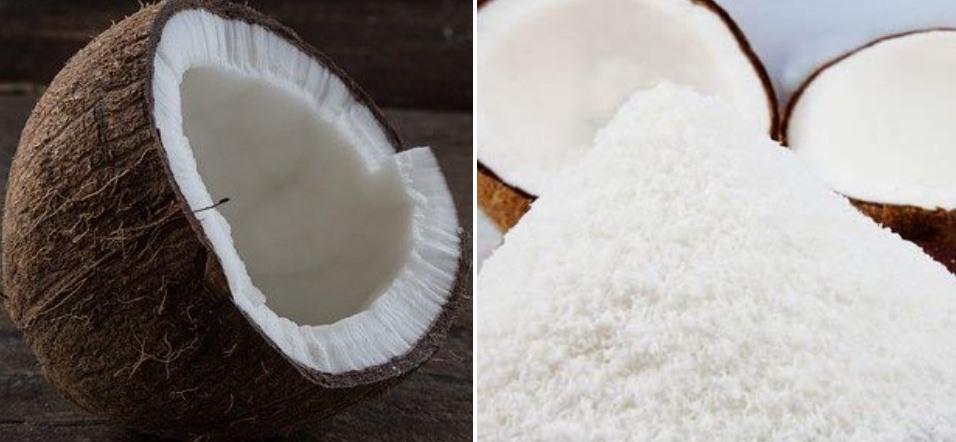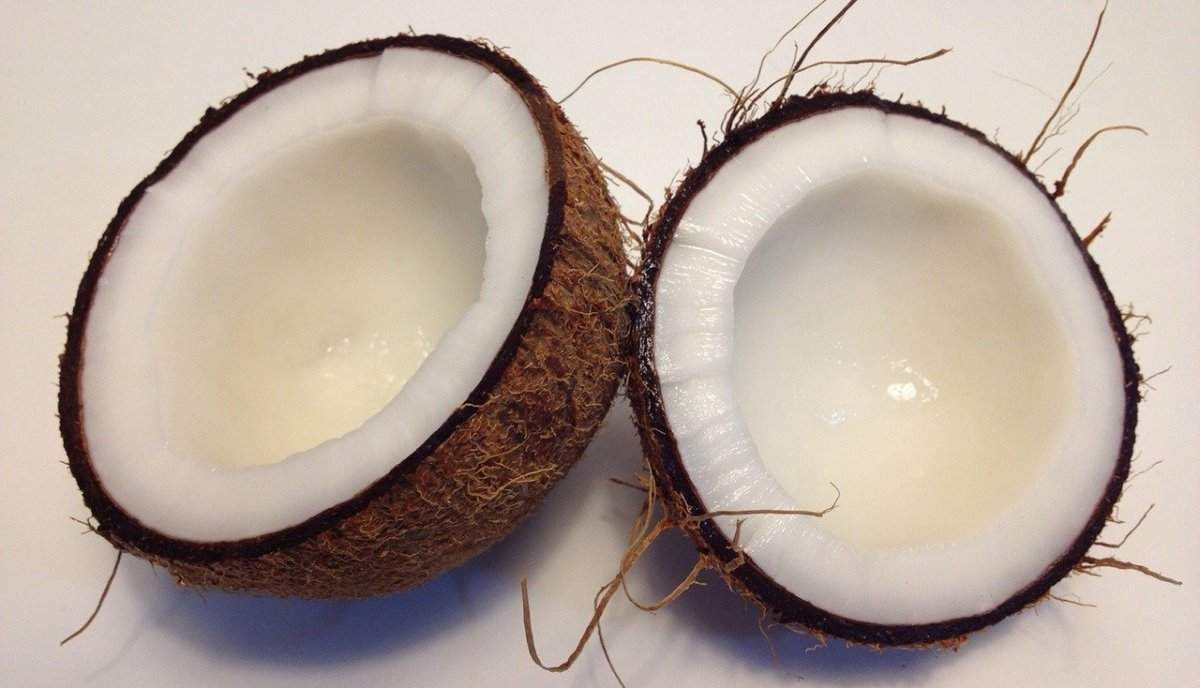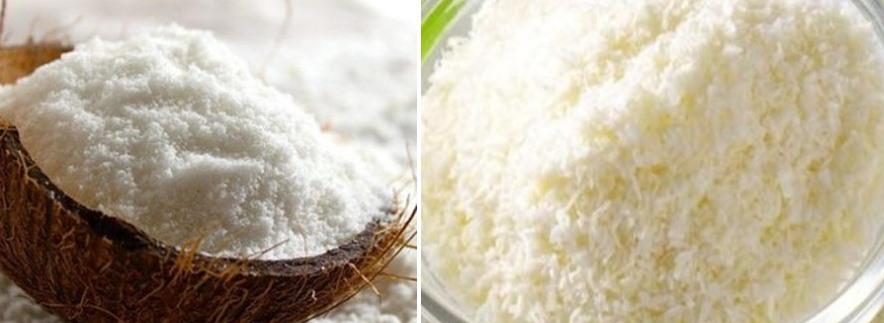Introduction to Desiccated Coconut Powder Project Report, and Manufacturing Business Plan: India is the third-largest coconut-producing nation in the entire world. As per the analysis conducted by the coconut expansion board in 2013-14, the annual cultivation of coconut in Kerala is 5798.04 million nuts and the state has been the 3rd largest coconut producing area in the nation. In Kerala, about 60% of the coconuts are sent for oil manufacturing, and the rest the used in food preparation. Copra and coconut oil are the two main products of the coconut processing sector. Around 60% of the total production of nuts is used for food uses and the left goes during oil extraction. Desiccated coconut is extensively used for confectionery and sweets preparation, curry preparation, etc. Currently, around 4000 tons of desiccated coconut are produced every year. In India, the major units producing coconut powder are located in Kerala, Andhra Pradesh, Karnataka, Maharashtra, Tamil Nadu, and Orissa. Desiccated coconut is not only a value-added item but is a labor-intensive sector and thereby has the scope to generate a large number of employment opportunities.
Desiccated Coconut Powder Project Report, Coconut Powder Extraction, and Manufacturing Business Plan in India

Market potential of Coconut Powder: As it is a mass consumption product, desiccated coconut has a huge market. Currently, about 4000 tons of desiccated coconut are manufactured per year and used majorly by confectionery and biscuit factories. In Kerala coconut is the chief ingredient employed while preparing breakfast, lunch, or dinner. Even while preparation of curries coconut paste is often used. Instead of that desiccated coconut powder could be a better substitute. Desiccated coconut may be used in areas where coconuts are not grown abundantly like Northern India. Nowadays food habits of our people are altering rapidly and several food items are being discovered every day where desiccated coconut could be extensively used as well. So there is a great potential for new small-scale units to venture into this line of business.
Business plan for starting Coconut Powder Manufacturing Business
To start a small-scale Coconut Powder Manufacturing Business in India, you need to first draft a perfect business plan by considering the following points:
- Basis and presumptions of Coconut Powder Manufacturing Business
- Implementation schedule
- List of approvals required to start Coconut Powder Manufacturing Business
- Raw materials required for Coconut Powder Manufacturing Business
- List of machinery and equipment for extracting Coconut Powder
- Manufacturing process of Coconut Powder
- Project economics of Coconut Powder Manufacturing Business
Basis and Presumptions of Coconut Powder Manufacturing Business
The Project Profile relies on the following assessments:
- Working hours/shift: 8 hrs.
- No. of shift/day:1
- Working days: 300
- Labor expenses: According to State Government’s Minimum Wages Act.
- Rate of interest: 15% per annum
- Costs of machinery and equipment: Taken based on A particular dealer
- Value of raw material: As per local market Packing material/others rate (on wholesale rate)
- Land: owned
- Building Construction charge: About Rs. 2000 per sq. ft.
- Break-even point will be estimated on a full capacity utilization basis
- Pay-back time is 7 years
Implementation schedule of Coconut Powder Manufacturing Business
The project implementation schedule
- Project preparation: 0-1 month
- Location selection, acquisition of 1-2 months land and land development
- Loan Sanction: 1-3 months
- Building construction: 3-4 months
- Connection of electric supply and water: 4-5 months
- Obtaining machinery: 5-6 months
- Electrification & installation: 6-7 months
- Recruitment of staff and workers: 7-8 months
- Trial run can be initiated in 8-10 months
- Commercial production could start from 10-11 months
List of approvals required for starting Coconut Powder Manufacturing Business
Coconut powder is a food product. Hence the business requires various registrations and licenses before beginning. These requisites are mainly based on the location where you are planning to initiate the unit. However, it is suggested to contact local small business professionals and tax consultants.
- Primarily, you must define the management design of your organization. And then as per the design, register your business.
- Firstly, apply for MSME Udyog Aadhaar which is available as online registration.
- Then, the important trade license from the local municipality should be applied.
- The business comes under the food Industry category and requests consent from FSSAI which is also done online.
- Nowadays it is a must to apply for GST registration.
- Try to create a current account in any of the nearby banks.
- Then it is important to apply for the BIS certification. The Bureau of Indian Standards specification for the product is IS 966:1962. The product must also conform to the PFA Act, guidelines
Moreover, it is essential to check the tax liabilities as well for this business.
Raw materials required for starting Coconut Powder Manufacturing Business
In case if you miss this: Garlic Oil Manufacturing Project Report.

The chief materials are coconut nuts. In addition to that, you must obtain the packaging materials for your coconut powder manufacturing business.
The manufacturing process of Coconut Powder
During the manufacture of desiccated coconut, the choice of good quality coconuts is the first step. Since the quality of desiccated coconut is based on the quality of coconuts used. Fully matured coconuts of around 12 months are best for the preparation of desiccated coconut. Fully matured nuts are kept with the husk for around one month so that the water inside the kernels will be absorbed. This also helps coconut kernels to separate from shell walls. The coconuts are dehusked and their shells are separated. The brown portion of nuts known as tasta is removed by the commonly used scrapping technique. About 10-15% of the kernel goes as paring here in the step. These parings will be pressed post drying to obtain oil which can be used for soap preparation. Deshelled coconuts are cut into pieces, washed thoroughly, and desiccated into powders of several grades. The powder is then dried using a drier by spreading it out uniformly using trays. The temperature in the drying chamber is kept at about 180°F and the powder is agitated occasionally while the drying process takes place so that drying is performed uniformly. Proper care must be taken while drying. When the powder is dried, it is cooled and passed from a vibratory screen with different sizes (12, 14, and 16 mesh). The segregated material is then packed in oil-proof, moisture-proof plywood boxes (25 Kg) which are lined with polythene. It may also be packed using polybags of various quantities such as 250 gm, 500 gm and sent to retailers. During the manufacturing of desiccated coconut, several by-products like parings, coconut shells, and husks are formed which may be converted into several products of vital importance. It has been reported that 100 kg of desiccated coconut is gained if 1000 coconuts are acquired.
Desiccated Coconut Powder Project Report/ Economics of Coconut Powder Manufacturing Business in India
You may also check this: Ideas To Make Money In India.

Fixed Capital
i) Land and Building
Land Owned
Building 2000sqft @Rs.2000 per Sq. ft: Rs. 4,00,000
Over Head Tank: Rs. 40,000
Total: Rs. 4,40,000.
ii) Machinery and Equipment
Cabinet-type hot air drier with blower, motor, and other accessories: Rs. 1,85,000
Disintegrator 12″ size with 10HP motor and accessories: Rs. 1,05,000
Vibratory sifting machine fitted with GI wire mesh and 2 Hp motor: Rs. 50,000
Aluminum Trays 10 nos: Rs. 15,000
Platform weighing Balance: Rs. 10,000
Polythene sealing machine 2 nos: Rs. 5,000
Other misc items like scrapping knives, trolleys etc.: Rs. 10,000
Working tables: Rs. 20,000
Lab testing equipments: Rs. 20,000
Electrification and installation: Rs. 50,000
Essential Office furniture: Rs. 25,000
Total: Rs. 4,95,000
iii) Pre Operative Expenses: Rs. 25,000
Total Fixed Capital (i+ii+iii): Rs. 9,60,000.
Working Capital
i) Raw Materials
coconut with husk 75000nos 2 Rs 10: Rs. 7,50,000
Polythene bags 75 kg @ Rs120 per bag: Rs. 9,000
Plywood Boxes of 25kg capacity 300nos @ Rs.100 per box: Rs. 30,000
Labels, gums and other packing aids L.S: Rs. 10,000
Total: Rs. 7,99,000
ii) Salaries and Wages
Manager cum Food technologist 1: Rs. 20,000
Sales man: Rs. 10,000
Skilled workers-2: Rs. 30,000
Helpers 10 nos: Rs. 50,000
Total: Rs. 1,10,000
iii) Utilities: Rs. 11,300
iv) Other Contingencies: Rs. 13,700
Total working capital (i+ii+iii+iv): Rs. 9,34,000.
Total Capital Investment
a) Fixed Capital: Rs. 9,60,000
b) working Capital: Rs. 9,34,000
Total: Rs. 18,94,000
Source of Fund
Term loan: Rs. 7,20,000
working Capital Loan: Rs. 7,00,500
Own fund: Rs. 4,73,500
Total: Rs. 18,94,000
Total loan amount required: Rs. 14,20,500.
Cost of production
Total recurring expenditure: Rs. 9,34,000
Depreciation on Building and tank @5%: Rs. 1,833
Depreciation on machinery and equipment @10%: Rs. 2,917
Depreciation on hand tools@15%): Rs. 438
Depreciation on Office equipments@20%: Rs. 1,000
Interest on loan (15%): Rs. 17756
Total production cost: Rs. 9,57,944
Say: Rs. 9,58,000.
Turnover per month
Desiccated Coconut 7.5 Tone @ Rs.130000 per ton): Rs. 9,75,000
Coconut shell 2 MT @35000per mt: Rs. 70,000
Coconut husk 75000 nos @ 40ps: Rs. 30,000
Total: Rs. 10,75,000
Net profit per month: Rs. 1,17,000
Annual profit without tax: Rs. 14,04,000.
Break-Even Point Analysis
1) Fixed Cost
Depreciation: Rs. 6,188
Interest: Rs. 17,756
40% of salary and wages: Rs. 44,000
40% 0f other expenses: Rs. 5,480
Total: Rs. 73,424.
2) Net profit: Rs. 1,17,000
B.E.P = Fixed Cost x 100 / (Fixed Cost + Net profit) = 38.56%.
Pollution control for Coconut Powder Manufacturing Business
The main effluent generated in the process of desiccated coconut is the after-wash water that includes dissolved solids along with coconut oil. The level of dissolved solids and oil is not important and the effluent water can be reused without any harm for irrigation works or drained out after excluding or filtering solids and oils. The water containing detergent can be used for cleaning equipment and is disposed of separately. Proper disposal arrangements should be planned for dumping refuge and perishable spoiled items and a separate pit must be built for these purposes. Proper hygiene and sanitation will keep the ecosystem free of pollutants. However, a NOC is mandatorily obtained from State PCB- Pollution Control Board and care should be taken to reduce pollution.
Energy conservation in Coconut Powder Manufacturing Business
Electrical energy is the main driving source in the process of desiccated coconut manufacturing. Care should be taken to keep the power load at the minimum uniformly. Capacitors should be installed for motors to keep the power factor to its maximum.
Advanced designs of tube light with electronic choke must be installed for lighting purposes for having an efficient light source with less electric energy consumption. Factory shed should be constructed in such a manner that natural light could be utilized particularly in the daytime, the optimum temperature should be optimized in the drying chamber to obtain the product with less consumption of energy. Proper care of electrical machinery and equipment will further contribute to energy conservation. Proper monitoring should be performed in the operation of equipment specifically for drier and when not used, it should be turned off.
- Handicraft Making at Home: A Small Profitable Business Idea
- Pet-Tech Startups: Innovations for Animal Lovers
- Tech Repair Services: Meeting the Demand for Gadget Maintenance
- Maximizing Rewards: Smart Credit Card Habits for Cashback and Points
- Ultimate Guide to Making Money from Goat Milk Business
- How to Start an Agricultural Value Added Product Business
- Value-Added Business Ideas for Greenhouse: The Best Ways to Make Profits with Greenhouse Farming
- How to Make Profits with Organic Country Chicken: Best Strategies for Beginners
- 10 Value-added Business Ideas for Millets: Low-investment and Highly Profitable
- Why Cleaning Service Business Becoming More Profitable in Metro Cities in India
- 10 Best Businesses to Start in Ayodhya for Profits
- Top Drone Business Ideas in India: Unlocking Aerial Innovation & Opportunities
- Top 10 Service Businesses You Can Start with No Money
- Ultimate Guide to Starting a Home-Based Advertising Agency Business
- Starting a Nail Salon Near Your Location: Check List, Business Plan, Licensing, and Opening Instructions
- Construction Company Name Ideas: Guide to Create New Construction Company Names
- 8 Best Small Businesses to Start in Hyderabad: Low-Cost and Profitable
- 10 Best Small Businesses to Start in Massachusetts: Low-Cost and Profitable
- 10 Best Small Businesses to Start in Maryland: Low-Investment and Profitable
- 10 Best Small Businesses to Start in Delaware: Low-Investment and Profitable
- 10 Best Small Businesses to Start in Connecticut: Low-Investment and Profitable
- Top 10 Best Online Pet Business Ideas: Exploring Cats to Dogs
- 10 Best Small Businesses to Start in Colorado: Low-Investment and Profitable
- Top 10 Profitable Small Business Ideas in California: Low-Investment Tips
- From Little Rock to Fayetteville: Top 10 Profitable Small Business Ideas in Arkansas
- Top 10 Profitable Small Business Ideas in Alabama: Discover Opportunities in Alabama’s Growing Cities
- Top 10 Profitable Small Business Ideas in Arizona: Discover Opportunities in Arizona’s Growing Cities
- Golf Business Ideas: Exploring Golf Course Money Making Ideas
- Low Capital Profitable Small Farm Ideas: Farming Ideas to Make Money
- How to Write a Business Plan for Daycare: Exploring from Financial Projections to Risk Management